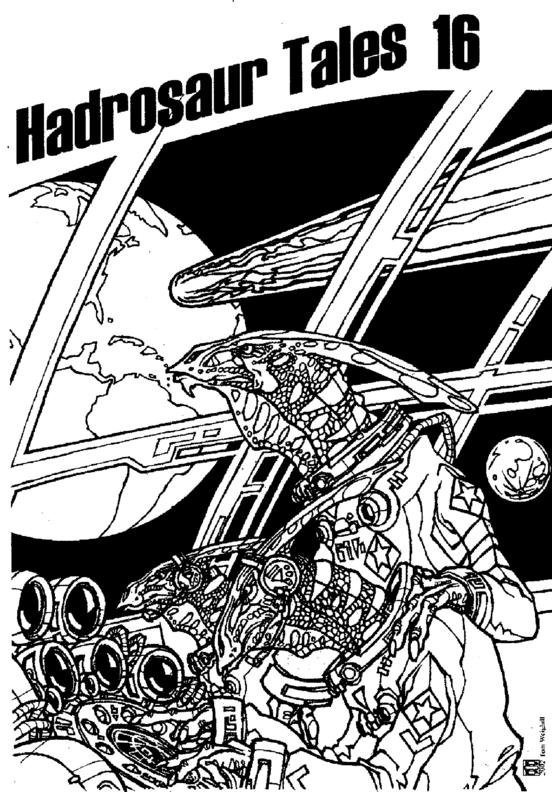It's not surprising that writer, David Lee Summers, who edits and publishes this fantasy and science fiction magazine out of Mesilla Park, New Mexico, would have such an introduction. Among the hats he wears is that of astronomer at New Mexico State University in Las Cruces.
In Neal Asher's “The Thrake,” a stubborn and biased creationist pays a visit to a planet where some of the wildlife under study has superficially humanoid characteristics. As I started reading this one, it almost began to seem like the sort of science fiction that appeals to engineers, and which I generally try to avoid, not being an engineer myself by any stretch of the imagination. “Thrake” never gets bogged down in its future-tech inventiveness, however, and unfolds into a generally well-executed and identifiably human tale.
Randy D. Ashburn's near future “Healing Bobby” includes quibbling over the treatment for some hideous ailment tormenting a young and less-than-wealthy female patient. “Bobby” probably shouldn't be read by those with false teeth because the climax will hit the back of your cranium like a 20-pound sand bag.
Gary Every has been an explorer, geologist, ditch digger and photographer, among other things. I thought his short pastiche “Ventana Cave,” which involves archeologists, an indigenous people and an old god, was rather marvelous, brief, fragmented and dreamlike, deftly side-stepping the tendency toward disbelief which characterizes the clinical contemporary mind, which is the point of any form of fantastic fiction.
Of the 11 poems, I most thoroughly enjoyed Gary Every's “Drunken Astronomers,” in which we are treated to the image of Johannes Kepler, warm and drunk with brandy, giggling and dancing down the street in a mild snowstorm, convinced that the complexity and design of the snowflakes prove the existence of God.
My favorite of the 11 yarns located herein was Michelle Scott's rather long “Leadfield,” in which a corporate city slicker in an economically eroded near future goes out into the middle of nowhere to collect two months back rent from a guy he can't find. Imagine arriving in a ghost town hemmed in by wilderness, in the pouring rain at an ungodly hour, only the passenger's side wiper functioning in your rental car. Then you find that civilization consists of a credit card friendly automated restaurant, an automated hotel equipped with credit card operated vending machines, an automated barber shop and so on—and another whiplash surprise ending.
If the fascinating trip to some very far away times and places that is David Lee Summers' Hadrosaur Tales is any criteria, Mesilla Park, New Mexico, may not be quite as close to home as you think it is.









